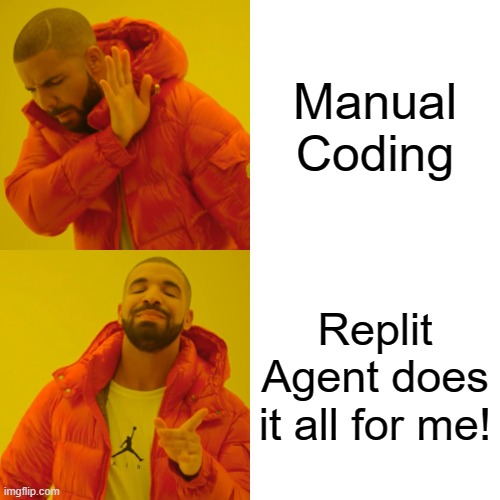Have you ever wondered, “What are the real applications of AI?” or thought, “Well, I tried it, and it doesn’t really work”? Fortunately, I know how to pack everything important about AI into one post.
TL;DR — AI today is a tool for engineers that allows for the very cheap creation of highly efficient, narrow microservices to solve business problems. The larger the company, the greater the output. The money is here.
Below, I’ll briefly cover what’s happening today, what will happen tomorrow, and address some popular misconceptions.
Here’s How the Situation Looks Today
1. AI Models Are Getting Smarter Very Quickly
If you tried something a year ago and it didn’t work, chances are it works today. And if it doesn’t work today, it might work tomorrow.
2. “Models” Are Not the Same as “Products”
Most AI models are incredibly powerful tools that can improve any business process. However, using them requires engineering skills.
3. Why So Few Successful Off-the-Shelf B2B AI Products?
Because engineering custom solutions using AI is much cheaper and more effective than buying any boxed solutions. For example, Klarna ditched Salesforce in favor of services generated using AI.
4. Corporations Are the Biggest Winners
Corporations spending hundreds of millions of dollars on operations with huge legacy processes, documents, code, and data stand to gain the most.
5. S&P 500 Companies Are Hiring AI Engineers in Droves
Right now, about 30% of all S&P 500 companies are hiring AI engineers en masse to eliminate boxed SaaS solutions and replace them with custom AI solutions.
6. “Custom AI Solutions” Include AI-Assisted Development
For instance, if your company needs to input invoices from PDFs into a database, instead of buying a ready-made service, you can ask AI to develop the appropriate microservice for you. Within two hours, you have ColQwen2 deployed in your AWS with the necessary prompts.
7. Using Large Models to Build Specialized Services
The main application for AI now is using large and smart models to quickly develop small, highly specialized services for solving operational tasks using weaker models or even without AI.
8. Large Models for Analysis, Automation, and Research
Big models are also used for analyzing large amounts of information, automating complex processes, and conducting research.
What Will Happen Tomorrow
1. Rule of Thumb — Chat-Based Consumer AI Products Will Be Overtaken
If a consumer AI product works through chat, sooner or later it will be overtaken by a new feature from ChatGPT.
2. Survival of Consumer AI Products
Consumer AI can survive if the product has social mechanics, access to truly unique data (e.g., medical records), or if the service is inaccessible to public companies (e.g., adult content).
3. A New Breed of Off-the-Shelf B2B Products
Agents with a high level of autonomy are the new type of boxed B2B products. Small companies with lean teams will benefit the most. I believe this is comparable to the rise of small boutique businesses in the mid-2010s, thanks to platforms like Tilda, Instagram, and targeted advertising.
Popular Misconceptions
1. “If AI Can’t Count the Number of ‘R’s in ‘Strawberry,’ It Can’t Be Trusted with Complex Tasks”
AI is trained and tested on tasks for which a company like J.P. Morgan might pay $1 billion a year. This list doesn’t include counting letters in words, solving riddles from summer camps, discussing the philosophical ideas of Hungarian socialists, or fact-checking obscure individuals.
2. “AI Generates Words Sequentially; It Doesn’t Understand Meaning and Can’t Be Part of a Reliable System”
A nuclear power plant is just water vapor turning a turbine. A Falcon rocket is just a jet pushing a tank. A MacBook is just zeros and ones that turn tiny lights on and off. Sometimes very simple things can form the foundation of incredibly complex solutions.
3. “I Read in a Report from an Expert…”
You didn’t read reports; you read posts by people who read the reports for you. When Goldman Sachs released a report this summer presenting both skeptics’ and optimists’ forecasts, only the skeptics were quoted in posts. No one, of course, cited the positive report from McKinsey. No one mentioned the highly optimistic report from Deloitte. No one quoted Fortune 100 executives who announced nine-figure investments in internal AI developments during earnings calls.
Most skeptics are simply upset that they have to watch the AI party from the sidelines. So they grumble.
Read the article: “Sonos’ Shocking App Relaunch Failure: A Cautionary Tale”


